POM061: New Personal Finance and Business Rules Learned from the Pandemic
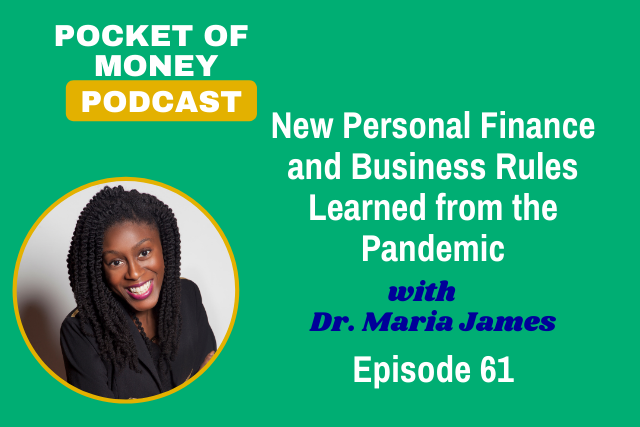
With the pandemic and quarantines, we had to transition to doing almost everything at home. We had to rethink a lot of activities and normal protocols for doing things. This also applies to how we deal with our money and business or side hustle. In this episode, we’re going to discuss how the rules or common procedures around personal finance and business have shifted or changed. Things that you will need to do for financial and business success.
Listen and subscribe: iTunes, Stitcher, Spotify
Resources Mentioned:
The Millionaire Next Door by Thomas Stanley and William Danko
The Wealth Choice by Dr. Dennis Kimbro
WISE Financial Fitness is filled with personal finance and business courses, protocols, and resources to increase your financial fitness. You can be paired with a Junior or Senior Money Scientist to craft a comprehensive money strategy for your unique situation.
Go from “I hate budgeting” to consistently planning, successfully budgeting, and saving money every month with the WISE Budget Box subscription. Only $75 per quarter ($25/month).
Just when you start to fall off, the WISE Budget Box will give you a motivational jolt and a box filled with a new set of tools every 90 days. You’ll also have continuous access to the WISE Financial Fitness portal filled with courses, protocols, and digital resources.
Thanks for Listening
If you have any comments or questions about this episode, leave a comment below. If you liked what you heard subscribe on iTunes, Stitcher, or wherever you listen to podcasts and rate it. This helps the podcast show up for others.
Episode Transcript:
This transcript is edited and not verbatim.
Hey Success Rebels, It’s Dr. Maria James The Money Scientist. With the pandemic and quarantines, we had to transition to doing almost everything at home. We had to rethink a lot of activities and normal protocols for doing things. This also applies to how we deal with our money and business or side hustle. In this episode, we’re going to discuss how the rules or common procedures around personal finance and business have shifted or changed. Things that you will need to do for financial and business success.
As a reminder we have great resources and articles on the blog at pocketofmoney.com. For those looking for a deeper dive into mastering their money and their business check out our programs WISE Financial Fitness and WISE Budget Box. Not only is WISE Financial Fitness filled with courses, protocols, and resources to increase your financial fitness, but you can be paired with a Junior or Senior Money Scientist to craft a comprehensive money strategy for your unique situation. I will have a link to WISE Financial Fitness and the WISE Budget Box on the show notes page at pocketofmoney.com.
There was a significant shift in the financial status of a lot of people. A lot of people found themselves in financial situations that was unexpected in terms of good and bad. Millions and millions of people had to file for unemployment. So many people were furloughed or let go from their positions and had difficulty finding a new position in their industry because the entire industry was negatively impacted by the pandemic. It’s one thing for a single company to be going through a tough time and have to furlough or let people go, but it’s another ballgame when the entire industry is having a tough time so numerous companies within that industry letting people go or furloughing their employees.
Looking at it from the employer or entrepreneur side, many entrepreneurs had and continue to have a tough time. They experienced a significant negative shift in their financial status if their business was in one of the industries that were significantly constricted by the pandemic.
On the other side, there are a number of entrepreneurs who saw significant gains or reached significant revenue milestones. For some small business owners, last year during the pandemic was one of their best years in business in regard to the number of people served or revenue made. Not every single industry was negatively impacted by the pandemic. There were and are some people who thrived. You know some of the really big you household names that are thriving such as Netflix and Zoom. So many more people are at-home streaming shows and movies.
It seems so long ago when we would make plans to go to the movies. Stand like a foot apart in line and go into a movie theater with a bunch of strangers and sit like 6 inches apart not 6 feet and enjoy a good show. And if it was a really good movie, you have a whole diatribe in your head about what you would do if you were the character in the movie and then discuss that whole diatribe after the movie when you’re talking about it with your friends or whoever you went with to see the movie.
Now, in many places you can’t go out to the movies, so the next best thing is to both stream the same movie on a streaming platform and be on the phone at the same time or use a messenger app to watch it together. And of course, it seems like everyone is using zoom to meet for business or social activities.
I think it’s safe to say that both of those companies and similar companies are doing very well. The type of financial status shift really depended on what industry you are in and how quickly you or your employer was able to pivot to serving customers or clients online and moving business operations online.
However, whether it was a positive or negative impact, there are shifts in the common advice or rules regarding personal finance and business that affects us all.
1) How much you should save.
I’ve seen a lot of people state that you should save or aim to save 10 percent of your income. This is considered common financial advice. However, I’ve always advised to save or rather aim to save 20% of your income. This came from when I was first starting on increasing my personal finance knowledge and working on my skill set. I can’t quite remember which book it was, but it was either The Millionaire Next Door by Thomas Stanley and William Danko or The Wealth Choice by Dr. Dennis Kimbro. It was one of those books or maybe listed in both of them. They each discuss habits of the wealthy. They mentioned that the wealthy saved and those who successfully build wealth saved 20% or more of their income. Then of course those savings were funneled to other financial goals and investments.
A few years ago, the average American saved around 4% of their income. In 2020, the pandemic cause that number to significantly jump as people rightly started hoarding their cash and being more conservative with spending. A magnify Money study found that the savings rate jumped to over 33%. People moved from saving less than 4% to saving over one third of their income.
I hope this becomes the new normal. I believe this needs to be the new normal. Try to save as much of your income as you possibly can. This way you have more money to funneled towards financial goals. Keep that same saving energy even as things start turning around.
2) Total Emergency Fund
The next thing is the emergency fund. Last year exemplified the need for an emergency fund. Money set aside for when there is a financial disruption. That disruption can be the significant decrease in income or significant increase in expenses. But having money or rather cash set aside to be able to handle a significant drop or hike in your finances.
I had a lot of people feel that if they had three months’ worth of bills set aside that this amount was enough to act as an emergency fund. Now everyone has a different level of risk tolerance. I am more risk averse, so my risk tolerance is not as high as other people. So for me I always liked to have around a year’s worth of expenses set aside for my emergency fund. As an entrepreneur, a year to 18 months’ worth of bills set aside is much more comfortable to me. Some people thought that this was crazy that I had way too much money just sitting aside not earning interest not doing anything for me. They would argue you know old imagine how much money you be making if you invested a lot of that money. If that is the price for peace of mind, then I’ll pay that price.
Now here comes pandemic rolling through and now I bet that that doesn’t look too crazy to have in all 12 months’ worth of bills set aside. No one could foresee the length of time that there would be a financial disruption for a lot of people you know due to the pandemic. People were comfortable with a smaller emergency fund because of their financial status at the time as well as their level of risk tolerance.
You have to consider your own risk tolerance and how much will give you peace of mind. I do think people should at least aim for the traditional 6-9 months and not do 3 months’ worth of bills as a complete emergency fund. I get it if you’re pausing there to pay off some debt then resume.
I know a complete emergency fund is a large dollar amount. It can take a long while to save up that amount of money. It can take a while to re-build it if you had to exhaust it or use up a large portion of your savings. Keep working at it and you’ll get there.
3) Cutting Costs Is Not Enough
A lot of personal finance advice focuses on cutting costs. There are a lot of tips and some experts go the way of shaming people into spending less money. However, spending less money is not and should not be the only focus. I think that too much attention is spent on only trying to get people to spend less money. You can’t spend less of what you don’t have in the first place. Spending less is not the only way to live within your means.
Don’t get me wrong. Streamlining your budget is very important. You definitely should optimize your budget, your income, or cash flow to put as much money as you can towards things that are important to you and towards your financial goals.
All the tips and information on creating good financial management systems and behaviors are crucial to financial success. No arguments there. However, there should be equal emphasis on increasing income and earning more money. More disposable income plus good financial management techniques equals a faster path to financial success.
Don’t only focus on cutting costs. Start there because decreasing expenses is the quickest way to take control of your money. However, all when you have streamlined your budget then turn more of your focus and energy to increasing your income. Side hustles and having multiple income streams or the saving grace for many people whose main business lost a lot of revenue or were furloughed or were laid off from their employment.
4) Don’t Let Good Debt Linger
It is said that there is good debt and bad debt. Bad debt would be things that have high interest rate such as credit cards or was used to purchase things that aren’t necessarily providing a return on investment.
Good debt is considered to be loans that have a low interest rates and are used for something that brings a return on investment. For example, student loans are considered good debt because in theory you should be able to get a higher paying job you would not have been able to obtain without the degree that you used student loans to get. A mortgage loan is also usually considered good debt because again in theory as you pay down the loan you build equity in your home and the home becomes an asset.
Well good or bad debt is debt. If you run into tough financial situation or tuft times, this is still money that will be coming out of your household. This still has the potential to be a source of stress when income becomes strained and that can happen for a number of different reasons. For many it is worth the peace of mind to have their home completely paid off or simply just not have to owe anyone and be able to put more money towards wealth building.
I know there will be some people that say you know run the math. And show that if you invest while paying off a 30 year mortgage than you end up on top because of the money made in your investments over the 30 years. Well 30 years is of long period of time and a lot happens in 30 years. Why not do both and pay off the mortgage your student loans sooner and then put even more money towards investments.
5) Stop Using 401(K) Loans For Business And Large Projects
It is possible to borrow money from your 401(k) before retirement and then pay it back over a specific amount of time. A 401(k) loan is different from a withdrawal. With a withdrawal you don’t pay the money back and you get hit with a lot of fees for taking the money out before retirement. Therefore, some people will use a 401(k) loan where they’re just borrowing the money to fund starting a business or do a large project such as a home repair project or something similar.
I’ve seen some business coaches state this as a good way to pay for a coaching package to start up a business. And no one probably biased because I’m money person but I do not agree with this method. Borrowing from your 401(k) is pretty risky. You run the risk of not being able to repay the money in a timely fashion should something happen to your job. Even if you just want to get different employments or transition to the sale better paying job you would then old the balance plus interest on the amount that you borrowed from your 401(k) immediately. If you can’t pay back the balance then you’ll get hit with a penalty of 10% and have to pay taxes on the amount that you borrowed.
Also you lose out on any potential gains that you would have received because not just a simple as putting the money back you’re paying it back slowly over time. Therefore, the amount of investments that is growing is much smaller.
I would suggest bootstrapping a business to start and saving up were earning the money necessary to invest in the coaching program of your choice. Try not to borrow from the 401(k) unless it is a true emergency and you have no other option.
6) It’s okay to start just to make money.
Alright now we are shifting gears a bit to business and entrepreneurship.
It is common advice to tell aspiring entrepreneurs to start a business based on their passion. Pick an industry or topic that you are passionate about and would do even if you couldn’t make money from it. There’s nothing wrong with this advice because I truly believe that you can figure out a way to make money in the industry that you’re passionate about. That passion will help you to re-motivate yourself when the days are long, the nights are long, things have fallen through, and numerous other reasons why an entrepreneur has a tough day.
However, it’s also perfectly acceptable to start a business or side hustle purely to bring in additional income. If you are really good at something or have a strong skill set and you want to monetize that skill set or your knowledge in a field and then go for it. Perhaps is not your passion but you know you could monetize it do it well and serve your customers or clients well. There is nothing wrong with that and side hustles and businesses being built by employed entrepreneurs are the MVPs during this pandemic. A few extra hundred or thousand dollars per month makes a huge difference.
Remember that each sale is backed by a person. Remember that you are serving your client or customer. This is the case if it’s a product-based business or service-based business or hybrid of the two. If you keep the top of mind that you are helping someone in exchange for that money, then you will be able to build a successful business. Focus on the people and getting them what they need in order to be able to make the money that you want.
People like to buy things, but they don’t like to be sold.
7) Create an operations fund.
The same way we just talked about an emergency fund and extending that for your personal finances. As an entrepreneur, you should have what I call operations fund. This is like an emergency fund for your business. This is money set aside to continue operating the business should there be a significant disruption in revenue.
I’ve always recommended 18 months’ worth of expenses set aside especially if you are a recent entrepreneur as in you started your business within the last 2 to 3 years. This number comes from my own experience when I was starting my business Pocket of Money. The pandemic definitely reiterated this lesson.
You may be thinking but that’s a large amount of money. I get it and the reasons are the same as were the emergency fund for your household expenses. It may take a while to save up that dollar amount. However, having the money there offers a peace of mind and a very real resource or tool to weather any unexpected financial disruptions.

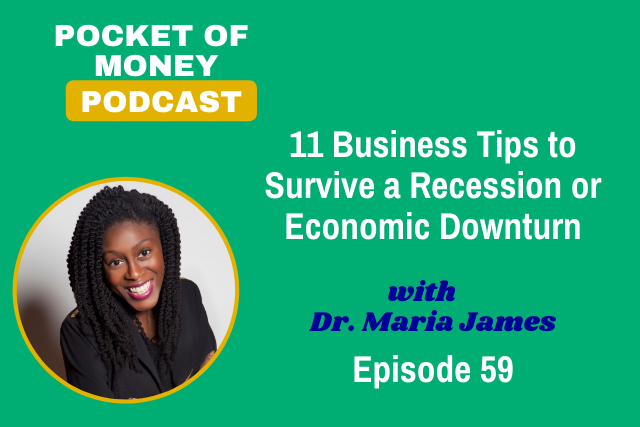
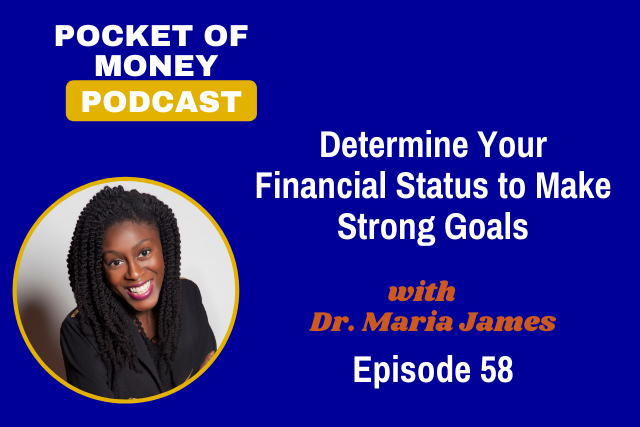
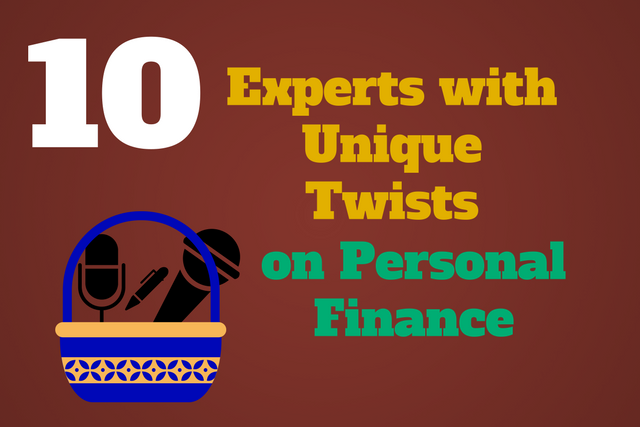
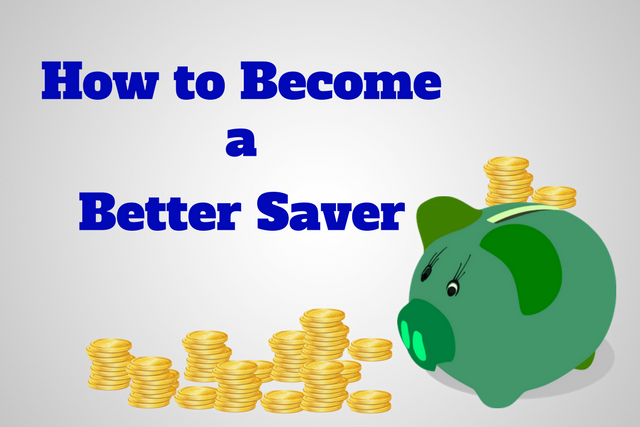
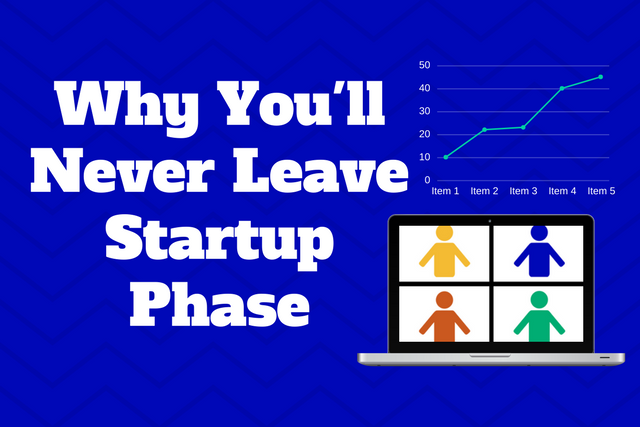
Responses